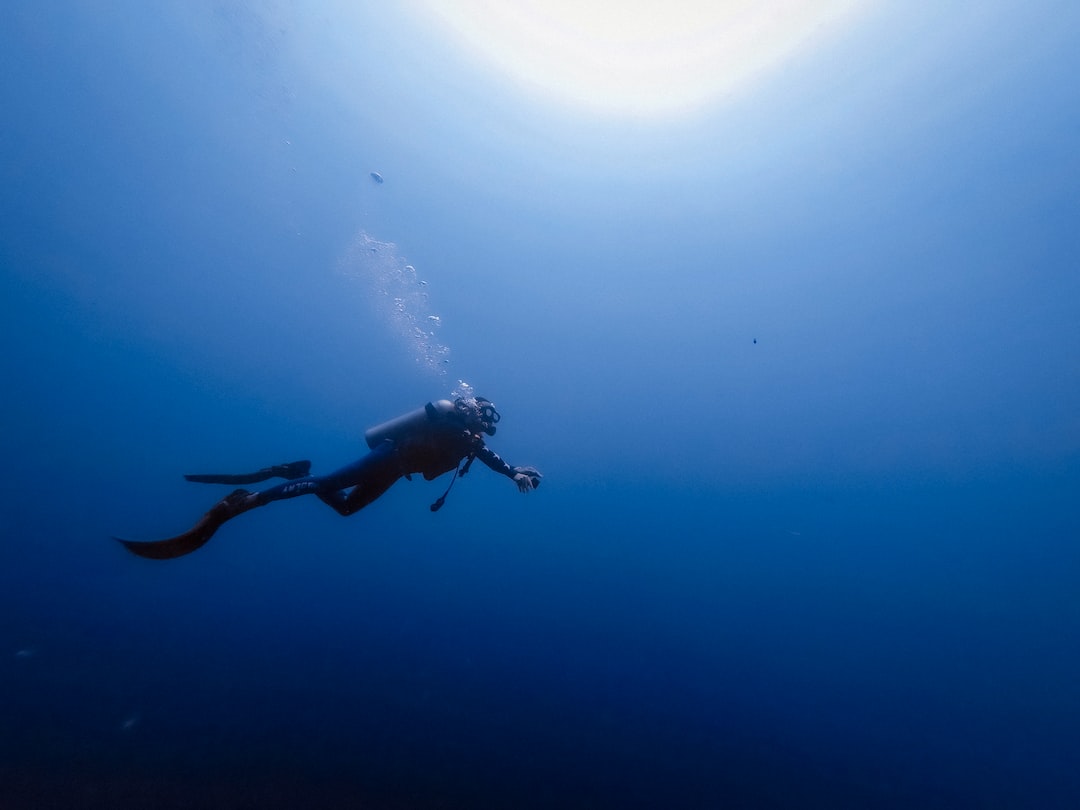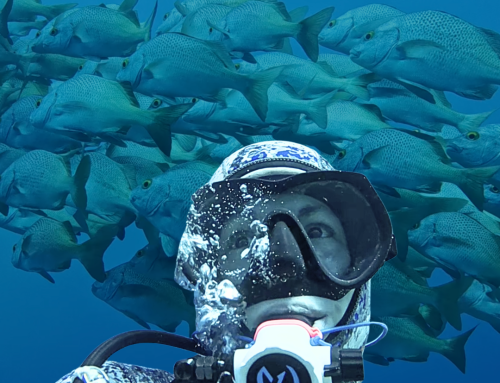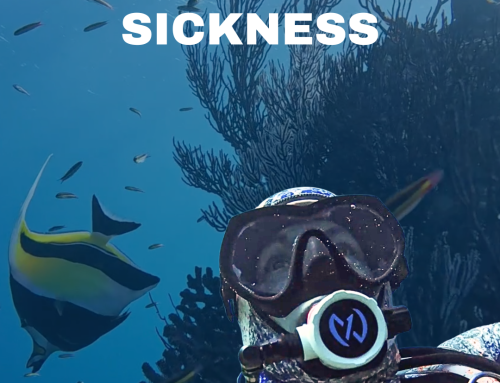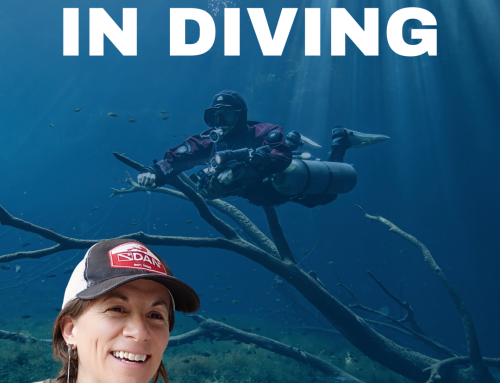Can you survive in the scuba industry?
In this video, I covered a wide range of ways you can make money in the scuba industry. I even shared real numbers about what I make with my scuba diving videos on YouTube.
As a reference, all of the money estimates will be in USD.
Salaries VS cost of living
Due to low salaries across the industry, it is only realistic to work full-time in the scuba industry if you are able to keep your cost of living low. This may look like sharing the cost of living with roommates, living in a country where rent and goods are inexpensive, or doing something crazy like living in a van…
In my opinion, the places where this is easier to accomplish are Central America and Southeast Asia
– Low cost of living and high volume of scuba diving tourists
Dive shop issues
Dive shops are notoriously bad at paying Divemasters and Instructors a livable wage. There are a few reasons for this. One is that the industry, in general, is very unprofessional, and some shop owners are tools. The other side of it could be a genuine misunderstanding or underestimating of their true cost of operation.
Tourists are constantly looking for the best diving deal, and shop owners sometimes bend over backwards trying to get clients. They shoot themselves in the foot by not charging enough, and unfortunately, some owners will choose to sacrifice their employees in order to recover some kind of profit. This is why so many Divemasters and Instructors have to rely on tips from clients to survive.
It’s not great.
Let’s start with dive shop jobs.
Working as a retail employee at a dive shop
You’ll typically earn minimum wage or possibly a few dollars more per hour. Sometimes you get equipment sales commission, and in most places, you will get a deep discount on gear and free air fills. If you’re just starting out as a diver or you want to make your hobby more affordable, this is a great way to do it.
Working on a boat
There are a handful of positions on boats, depending on the location.
You may be able to work as a host or cook. In some places, like California, these employees get paid the same amount as the Divemaster on board, which could be around $200 per day. In other countries, these positions may not be available to foreigners.
You could also look into getting your captain’s license.
– Note: Make sure you know the rules for where you want to work. Many countries only allow locals to be captains for tourist vessels in order to protect local jobs.

Divemaster
If you love diving and have the time to do a divemaster course (even if you don’t want to work as a divemaster), do the course for the experience.
From there, you can start working and enjoy being paid while you dive. However, remember that working as a Divemaster is not the same as going fun diving for yourself.
Salaries:
You could have a fixed monthly, daily, or per tank rate. Daily rate could be as much as 250 in places like Australia and 210 in California, or less than 100 in other parts of the world where the cost of living is significantly lower. You could be paid per tank, which could be anywhere from $7-40, depending on the country.
Responsibilities:
- Guide people
- Scuba diving refreshers
- Discover Scuba Diving intros
- Equipment moving/set up
- Safety
Salary can also include commissions for things like refreshers. Customer tips go on top of your salary so your monthly earnings will vary a lot, and the job is very seasonal. You’ll work a lot in high season and much less in low season. You may even take low season to travel as some locations or shops will close during that time of the year. This can offer the opportunity to work in different places, jumping from one high season to another, or you can take low season off to travel for fun, as long as you have budgeted properly.
Working as a Divemaster in the US, you could make anywhere from 1,700-3,500/month depending on the location and the time of year. Cost of living is very high in places with an active dive community (California and Florida), so you could make it work if you cut your costs, but it’s a tough gig.
Some Divemasters decide to move up the rank to become an instructor, but NOT EVERYONE SHOULD BECOME INSTRUCTORS.
Before signing up for an Instructor Development Course:
- Make sure you like teaching: do this by teaching refreshers, become a DSD leader, try it out before making the investment
- Assist courses, work with students, demonstrate skills
- See if you’ll make more money as an instructor in the places you want to work: Some places, for example certain parts of Australia, Divemasters get paid the same rate as Instructors. However, in the majority of places around the world, Instructors will make more money than Divemasters simply because they are making a wider range of commissions on the courses they teach.
Another note about choosing your IDC: it doesn’t really matter where you do it. The important factors are the Course Director and staff instructors who will be teaching the course. If you do your training in a place with wildly different conditions than where you end up working, take some time to co-teach with other instructors to learn the nuances of the different conditions. If co-teaching isn’t available, fun dive and ask for tips from shop employees and Divemasters.
Instructor
As an instructor, you will be certified to teach all standard recreational levels of courses. The same salary breakdown listed above applies here, except you’ll have a wider range of commissions from all the courses you can teach.
As you become a more experienced instructor and have the ability to teach more courses, you can make more money. An example of how this can be sustainable: an instructor living in Mexico can make around $1,500-2,000 per month, and with cost of living around $700-1,000 a month, they live comfortably.
You can continue to level up in your career to teach other things like technical diving or Instructor Development Courses. The key is to calculate the cost of training VS potential future gains. Training and equipment costs would be tax deductible in this instance.
For example, I am an IDC Staff Instructor, and if I wanted to become a Course Director, I would need to consider the huge price tag of that training versus how many students I anticipate teaching over the years. That calculation has never worked out in favor of completing the training.
Speaking of taxes… When you are a working professional, the tools of your trade become a tax write off. That means, when you need new equipment or to travel for work, you keep a record and report your costs with your taxes each year. Remember, this is a legal thing so you better have a real business need for buying that KISS rebreather…
Independent contractor or shop employee:
First, you have to be certified through an organization that allows you to teach without the direct association with a physical shop. There are several organizations you can choose from including PADI, NAUI, and GUE.
If you’re just starting out, I recommend that you work for a shop. You’ll get more access to clients and have the support of a staff. If you’re in another country, this may be your only option due to the work visa situation.
If you have experience and have built up your contacts, being an independent instructor can be nice. In this instance, I believe it is best to have an LLC for more protection as a business entity.
Pricing courses:
As for pricing courses, take time to calculate all of the costs associated with teaching a course including your instructor fees, insurance, and equipment maintenance. Figure out your profit goals per person or per course and then add a little more onto the course cost because there are always extra costs that come up randomly.
Owning a dive shop
This is not the cash cow that Open Water divers think it is. Opening a shop requires a lot of initial investment, and the return is slow or nonexistent.
It’s important to understand the market, figure out your costs, and determine your goals.
In general, profit margins are higher for any diving that doesn’t require the use of a boat. Owning a boat is expensive and you have to calculate your maintenance costs into all of your shop prices.
Selling equipment is a hard gig these days due to the increase in shopping online. Mark-up on equipment sales is usually high, but depending on the item, may be tough to sell in person. Things that require in-person fitting generally do better in that regard.
Expeditions require a lot of up-front hours for planning, but if you build a relationship with another shop abroad, it could be a nice way to offer something different to your clients and make a decent amount of money. You have to be clear about nonrefundable VS refundable payments in order to avoid losses due to flaky clients.
Commercial diving
All I know about commercial diving is that it’s challenging and hard on your body, but you do get paid quite well.
Public safety diving
This is primarily volunteer based, but if you’re employed through the local sheriff’s department, you may earn your normal salary on dive days. The training is typically what draws people into this type of work. You learn how to jump out of helicopters with your dive gear on and look for dead bodies…
Working for a certifying organization or equipment company
This type of work will take you away from the water, but you’ll still involved in the industry and usually making a comfortable wage.
It could be an option for people wanting to remain involved but looking for different types of opportunities for growth (marketing, program development, quality assurance).
You can move into this type of work after working as a Divemaster or Instructor for a while, and could be a long-term goal to stay in the industry as you get older.
Underwater Photographer/Videographer
You can sell your content on sites like shutterstock and create a stream of passive income. There’s a lot that goes into getting found and making sales on those websites, so do your YouTube university training to learn more.
You can also sell your services by working in dive shops that want to sell videos to their students.
If you are particularly skilled at your craft, you may be able to get professional gigs. Your rates are going to be highly variable according to your skill, equipment, and your client’s budget. Some photographers use a set rate for a 2–3-hour shoot. Within this rate, you want to cover not only your time in the shoot itself, but also all of the hours spent in post, creating the final products. Also, make sure to incorporate a set cost for the use of your equipment and editing programs.
Influencer
I think anyone who is interested in working as a dive professional should play with being active on social media. You can do this with your phone, a gopro, and a low budget (or free) video editing program. You do not need to spend huge amounts of money to get started. I recommend using your name as your handle and tag on ‘scuba,’ where you can. Also, buy the matching web domain, just in case. Start building your email list even if you don’t know what to do with it yet, and start playing with content.
You never know what’s going to hit with the public, so give it a go. BE AUTHENTIC when you share online because building a personal brand is more like a marathon than a sprint. You don’t want to pretend to be someone you’re not just for the likes. You’ll burn out and be done.
It’s a lot more work than you anticipate, and the payoff doesn’t come quickly, so you have to enjoy the process.
Now I’ll speak openly about how much money I make…
As of right now, November 2022, I have 9,752 subscribers on YouTube and make about $150-170 per month from Adsense.
How does this work? Every time someone watches or clicks on an ad in one of my videos, I get paid. That means if you’re watching a video from a YouTuber you enjoy and you get an ad, let the ad run. This is an easy way to help the people who create your favorite content.
Although the payout isn’t great, YouTube Adsense ends up being a form of passive income. I make money on videos I posted a couple of years ago, so that’s pretty cool.
Adsense is fine, but it’s inconsistent, so the real money comes from brand deals and platforms like Patreon. I have 43 paid Patrons, and with that I make about $550 a month. I don’t have a lot of experience with brand deals because the diving industry is way behind in the world of influencer marketing. They don’t understand the value of it yet, so I have focused my energy on Patreon.
I would imagine the guys at Dive Talk and other large YouTubers are making a decent living. Combining work online and in person classes could be a nice way to make it as an instructor full time while living in expensive places like the US and Europe…
However, getting to that level takes a lot of work and time unless you hit that sweet spot of virality.








